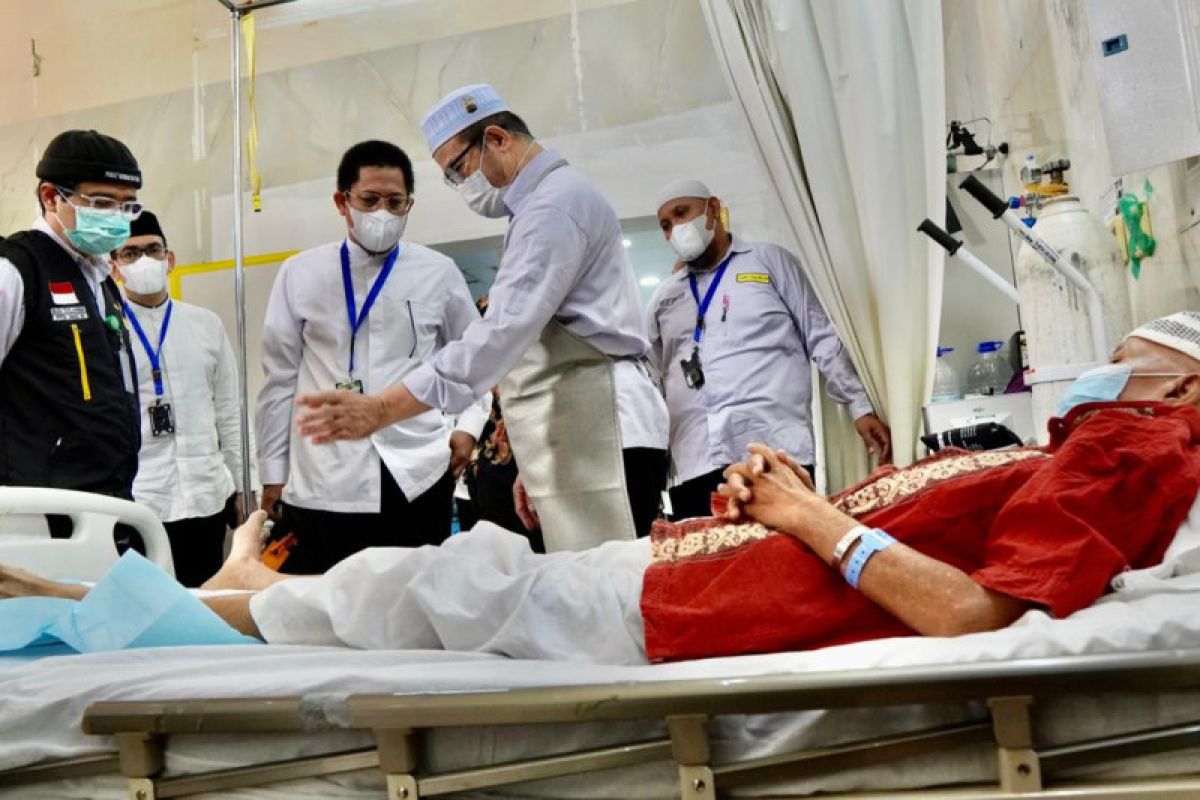"The outstanding work of the (Hajj) team and the health team had been successful in reducing the number of deaths and illnesses among (Indonesian) Hajj pilgrims," Ali noted here Tuesday.
Earlier, members of Indonesia's Amir al-Hajj (Hajj leader) team, which includes Ali, visited the Indonesian Hajj Health Office in Mecca, Saudi Arabia, to monitor health services for Hajj pilgrims returning from Arafat, Muzdalifah, and Mina.
During the visit, members of the Amir al-Hajj team also conversed with and motivated pilgrims, who received medical care at the facilities.
He noted that consolidation with relevant stakeholders to provide the best services for pilgrims also played a role in reducing the pilgrims' fatalities.
"Thank you to the Health Ministry that has performed its duty well. I believe that the ministry has prepared well to ensure that Hajj will be organized better in the future through consolidation and coordination," the official noted.
While coordination between national Hajj organizers has been going well, the secretary general highlighted efforts to lobby the Saudi authority on the handling of Hajj pilgrims referred to Saudi hospitals should be enhanced.
Until the end of the Hajj ritual peak this year, the authority recorded 41 deaths among Indonesian Hajj pilgrims, with 14 deaths alone occurring during the Hajj ritual peak at Arafat, Muzdalifah, and Mina.
The 41 pilgrim deaths recorded this year was a significant decline from earlier Hajj seasons, in which the death records always reached hundreds.
According to Hajj Information and Computerization System (Siskohat), 274 deaths were recorded on the 38th Hajj day in 2017, while 154 deaths were recorded during the same period in 2018 and 151 deaths in 2019.
Related news: 447 Indonesian Hajj pilgrims reported sick: ministry
Related news: Ministry prepares 13 disembarkation points for Hajj returnees
Translator: Desi Purnamawati, Nabil Ihsan
Editor: Rahmad Nasution
Copyright © ANTARA 2022










